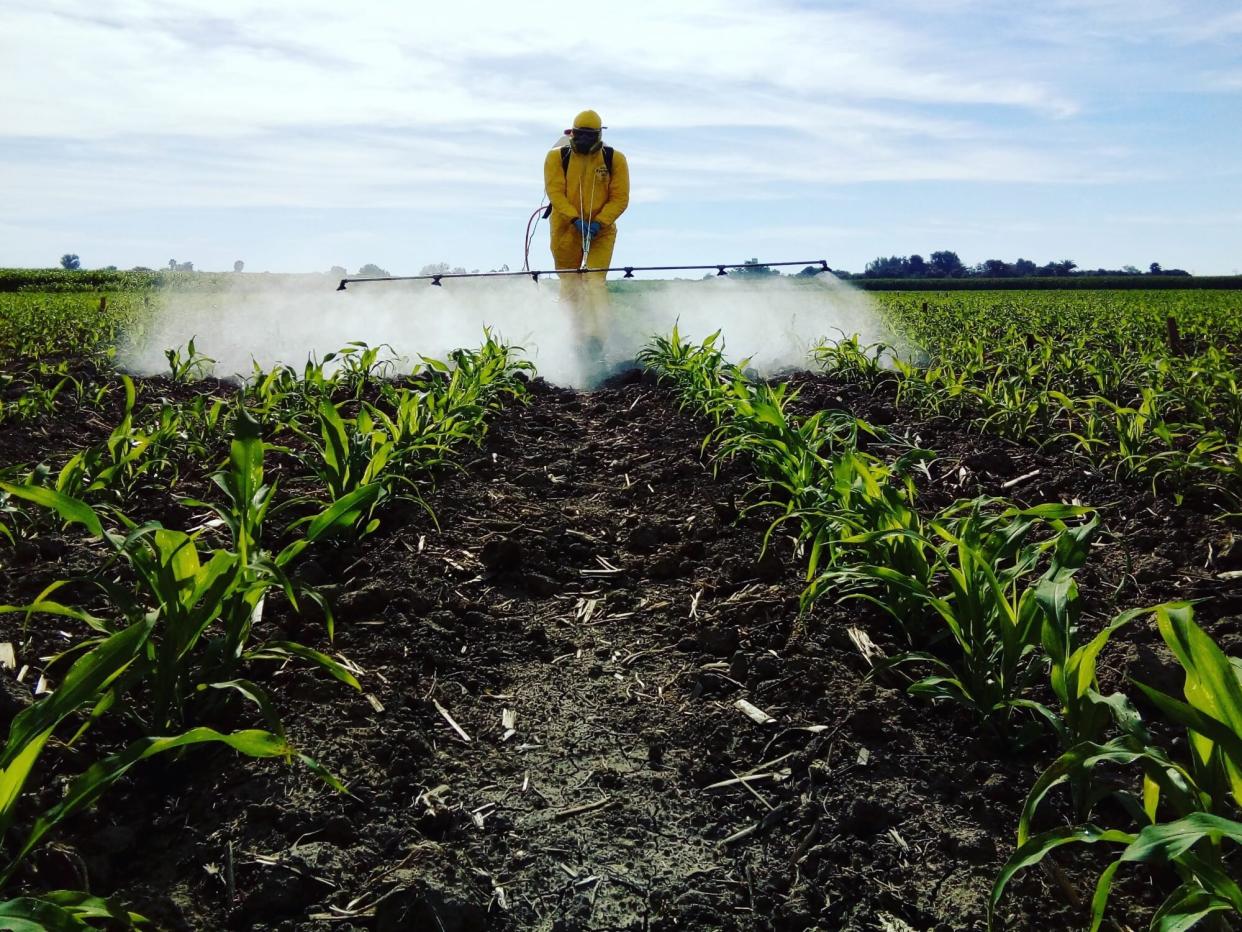Biden Admin Announces Ban on Widely Used Pesticide Linked to Health Problems in Children

Getty A worker spraying pesticides
The Biden administration announced Wednesday that they would ban a widely used pesticide that has been linked to health problems in children and farm workers.
The Environmental Protection Agency said that chlorpyrifos, a controversial chemical targeted by environmentalist groups, will no longer be allowed on food crops. The ban is a reversal on a Trump-era decision not to outlaw the pesticide.
"Today EPA is taking an overdue step to protect public health. Ending the use of chlorpyrifos on food will help to ensure children, farmworkers, and all people are protected from the potentially dangerous consequences of this pesticide," EPA Administrator Michael Regan said in a statement. "After the delays and denials of the prior administration, EPA will follow the science and put health and safety first."
Chlorpyrifos was typically used on crops such as broccoli, cauliflower, soybeans and fruit and nut trees, according to the Associated Press.
The pesticide has "been associated with potential neurological effects in children," the EPA said, and studies have linked chlorpyrifos to reduced IQ, memory loss and attention deficit disorder in children and fetuses.
The EPA said that their decision is based on a lack of data showing that the chemical is safe for use.
RELATED VIDEO: Terminally Ill Man Awarded $289 Million After Jury Rules Weed Killer Roundup Caused His Cancer
Chlorpyrifos was banned for household use in 2000, CNN reported, but it was allowed to continue in agricultural settings to ward off mosquitos, cockroaches and fire ants. Several states and countries, including the European Union, Canada, Maryland, California, New York, Hawaii and Oregon; later banned the chemical, and as of late it is not used as frequently at farms.
The president of United Farm Workers, Teresa Romero, said that they are "relieved that farmworkers and their families will no longer have to worry about the myriad of ways this pesticide could impact their lives," according to the AP.

